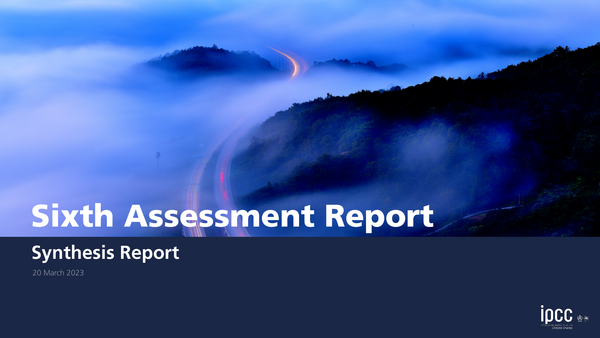- Share this article
- Subscribe to our newsletter
IPCC Sixth Assessment Report
The Synthesis Report, the last of the Sixth Assessment report cycle, published by the Intergovernmental Panel on Climate Change (IPCC) in March 2023, confirms that human activities, mainly through emissions of greenhouse gases, have unequivocally caused global warming. These include unsustainable energy use, land use and land-use change, as well as consumption and production patterns.
The report underlines that 22 per cent of global greenhouse gas emissions right now come from agriculture, forestry and land use. The IPCC scientists highlight with high confidence that many agriculture, forestry and land use options provide adaptation and mitigation benefits which could be upscaled in the near term across most regions.
For instance, they say that conservation, improved management and restoration of forests and other ecosystems offer the largest opportunity to counteract the economic damages caused by climate-related disasters.
Examples of effective adaptation options include cultivar improvements, on-farm, water management and storage, soil moisture conservation, irrigation, agroforestry, community-based adaptation, farm and landscape level diversification in agriculture and sustainable land management.
The IPCC also notes the importance of integrated approaches to meet multiple objectives, including food security, and underscores that shifting to healthy diets and reducing food waste, along with sustainable agriculture, can reduce impacts on ecosystems and free up land for reforestation and biodiversity restoration.
Furthermore, the Synthesis Report points out that while climate change policies and laws have improved, policy coverage remains limited in some sectors such as agriculture, and that the barriers preventing the implementation of mitigation measures in agriculture, forestry and other land use sectors are finance, institution and governance-related.
(FAO/ile)





Add a comment
Be the First to Comment